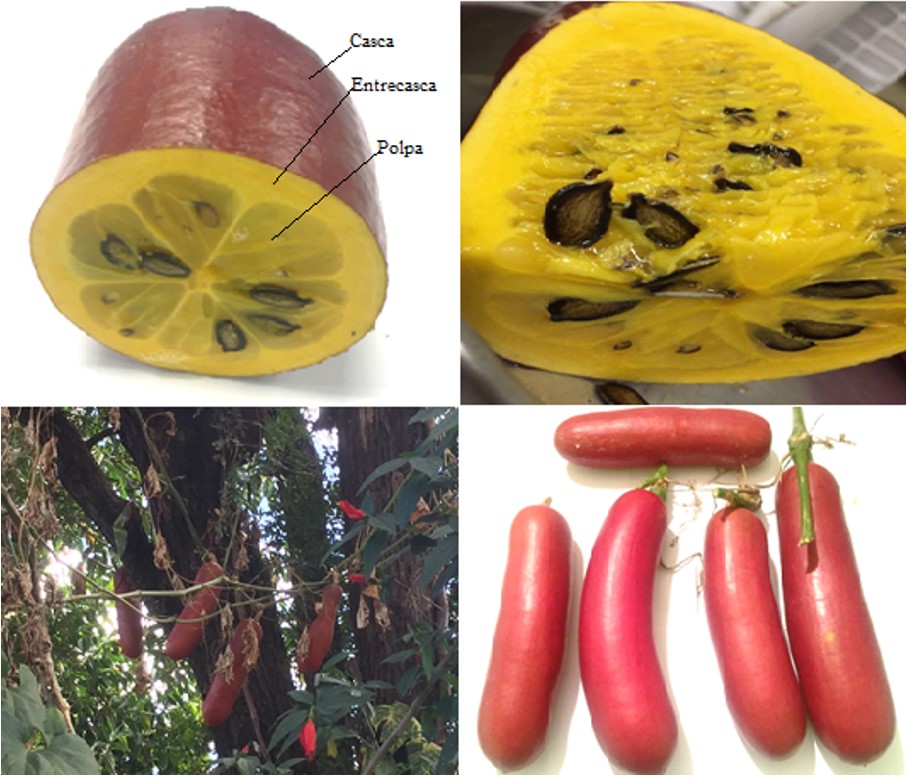Abstract
Musk cucumber (Sicana odorifera Naudin) is a still little-known aromatic fruit native of Tropical America, probably Brazil. It is used as food and insect repellent, for medicinal purposes, and to flavor environments. Little is known about its nutritional characteristics. In this context, this study aimed to perform the physical, physicochemical and nutritional characterization of musk cucumber. The fruits were characterized according to their chemical composition, pH, soluble solids (SS), titratable acidity (TA), recommended daily intake (RDI), anthocyanins, total carotenoids, vitamin C, and antioxidant activity of the pulp. The stability of carotenoids, vitamin C, and fruit color was monitored for 21 days of frozen storage (-18 °C). Carotenoids, vitamin C, and fruit color were affected by freezing during storage. The fruit has appreciable characteristics from a nutritional and functional point of view, since the daily consumption of 100 g of its pulp provides a significant fraction of nutrients recommended for daily intake by an adult. The fruit presents low caloric value - an interesting fact for dietary preparations, in addition to having antioxidant capacity and phytochemicals of interest to human health, such as carotenoids and anthocyanins. Regarding the bioactive compounds present in the fruit, it was found that freezing was not effective to preserve carotenoids and vitamin C. Given all the characteristics presented, musk cucumber is an excellent alternative for inclusion in human diet.
Keywords:
Exotic fruit; Cucurbitaceae; Red melon; Freezing storage; Stability

 Thumbnail
Thumbnail
 Thumbnail
Thumbnail
 Thumbnail
Thumbnail


